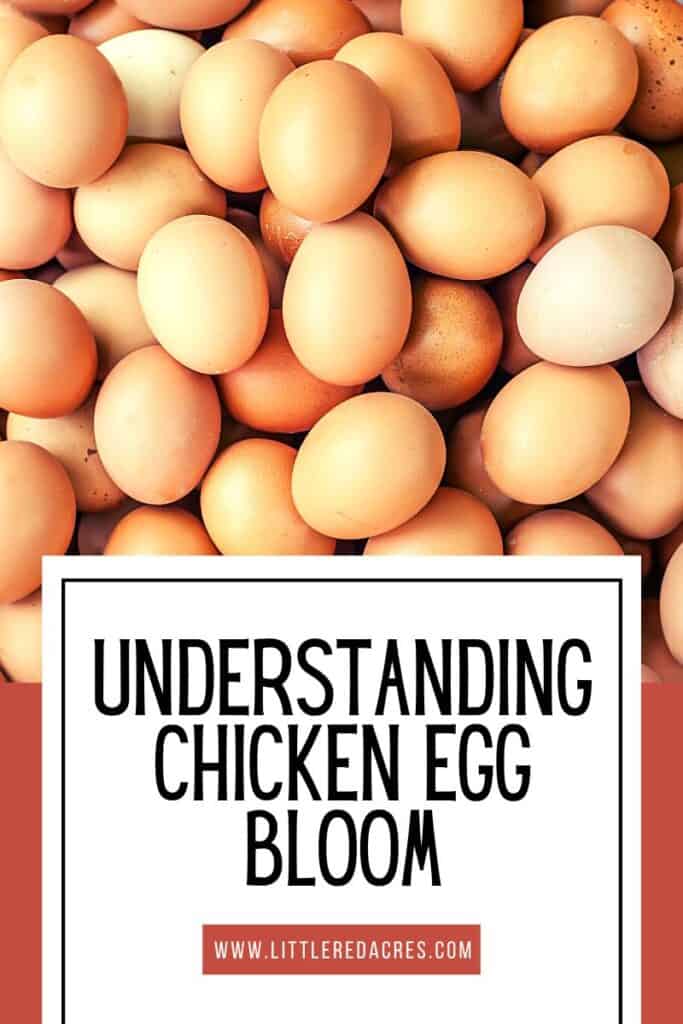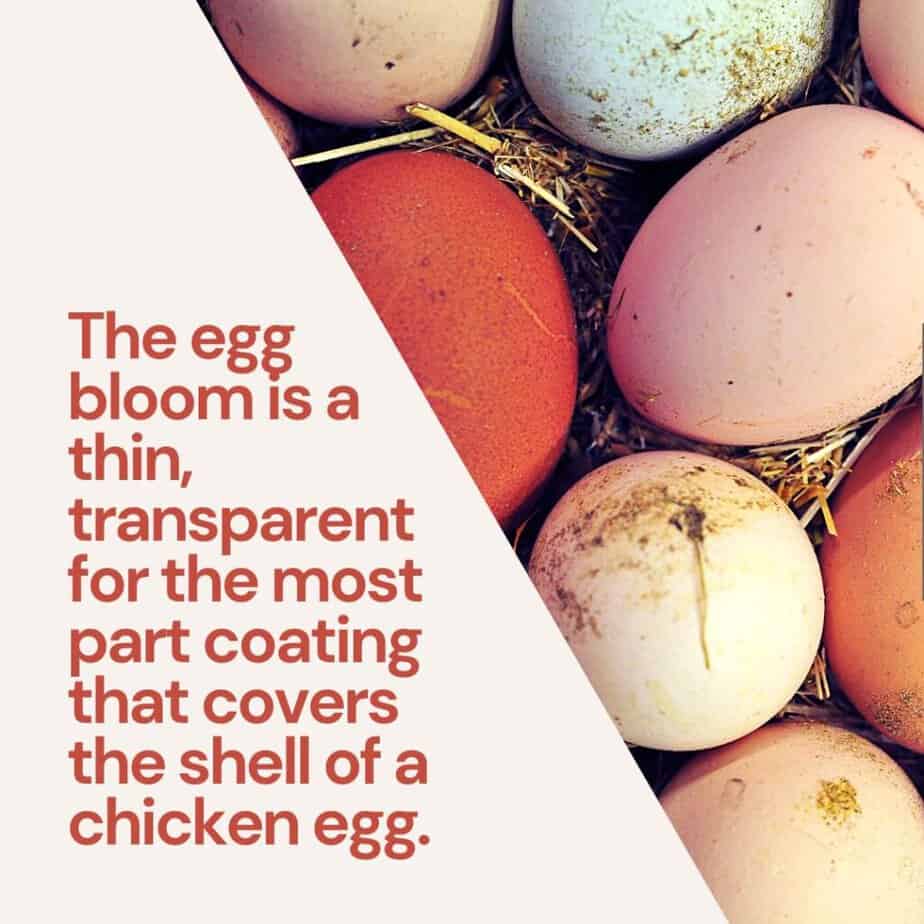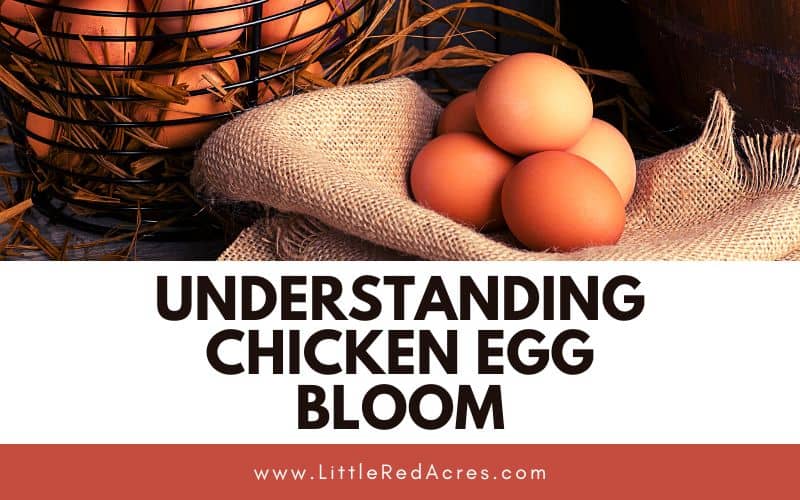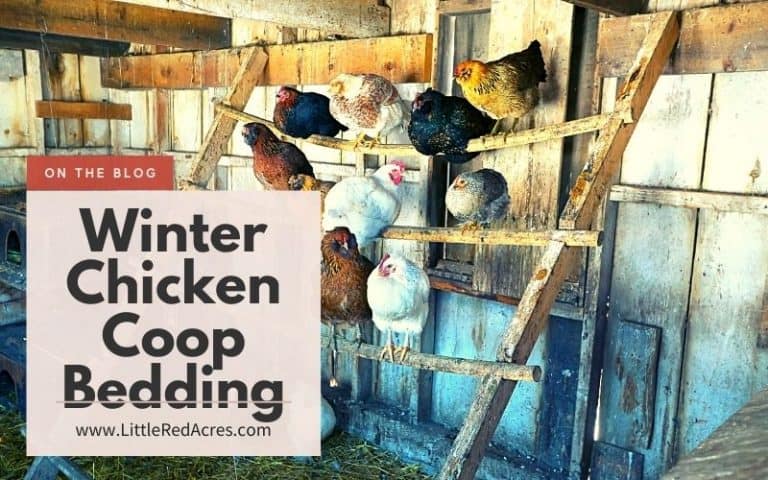Everything You Need to Know About Chicken Egg Bloom
Inside: Discover the significance of chicken egg bloom, the natural protective coating on eggs. Learn its functions, benefits, and handling tips.
When it comes to eggs, we often focus on their nutritional value and culinary applications. However, there's an often overlooked but vital component to eggs known as the “chicken egg bloom” or “bloom.” This natural coating, found on the shell of chicken eggs, serves as a protective barrier that plays a crucial role in maintaining the egg's freshness and protecting it from external contaminants.

This post may contain affiliate links, see my disclosure policy for more information.
Everything You Need to Know About Chicken Egg Bloom
Whether you're a homesteader or simply an egg enthusiast, understanding chicken egg bloom is essential for ensuring the quality and safety of your eggs.
Get updates & freebies delivered to your inbox!
What is Egg Bloom?
The egg bloom is a thin, transparent for the most part coating that covers the shell of a chicken egg. It is a natural secretion produced by the hen's uropygial gland, located at the base of her tail.
This coating acts as a protective barrier that seals the pores on the shell and prevents bacteria, dirt, and moisture from entering the egg.
Functions of Egg Bloom
The primary role of egg bloom is to preserve the freshness of the egg and maintain its quality.
Moisture Retention: The egg bloom helps to retain the moisture within the egg, preventing it from evaporating too quickly. This helps to keep the egg fresh and maintain its texture.
Which is part of the reason why we can keep eggs on the counter.
Protection Against Contaminants: The bloom acts as a natural defense mechanism, safeguarding the egg from bacterial penetration. By sealing the pores on the shell, it creates a physical barrier that reduces the risk of contamination.
This is why we don't have to wash our eggs until we want to eat them. Or wash them at all if we are incubating eggs.
Gas Exchange Regulation: Although the shell is porous to some extent, the bloom regulates the exchange of gases, such as oxygen and carbon dioxide, between the egg and its surroundings. This balance is crucial for the development of a healthy embryo, if the egg is fertilized.

Importance of Egg Bloom for Homesteaders
For homesteaders who raise their own chickens, understanding the significance of egg bloom is essential for maintaining the freshness and quality of their eggs.
Here's why it matters:
Reduced Washing: Unlike commercially produced eggs, which often undergo washing and sanitization processes, homegrown eggs with intact bloom require minimal washing. By avoiding excessive washing, the bloom remains intact, preserving the egg's natural defenses.
Extended Shelf Life: The presence of the protective coating helps to extend the shelf life of unwashed eggs. This is especially important for homesteaders who may not refrigerate their eggs immediately after collection.
Sustainable Egg Production: By preserving the egg's natural bloom, homesteaders can reduce the need for chemical sanitizers or refrigeration, promoting a more sustainable and environmentally friendly approach to egg production.

Handling and Storage Recommendations
To maximize the benefits of egg bloom, here are some handling and storage recommendations.
Minimal Washing: If the eggs are relatively clean, it is best to avoid washing them unless necessary. Wiping off visible dirt or debris with a dry cloth is usually sufficient.
Proper Storage: Eggs should be stored in a cool, dry place away from strong odors. An egg carton or egg storage container can help protect the bloom from being damaged.
Refrigeration: If you prefer to refrigerate your eggs, it is advisable to do so after they have been washed. Washing removes the bloom, making the egg more susceptible to moisture loss and potential contamination.
You can also refrigerate unwashed eggs, which means they are going to last even longer.

Chicken egg bloom is a remarkable natural coating that plays a significant role in preserving the freshness and safety of eggs. Whether you are a homesteader or someone who enjoys the taste and nutritional benefits of fresh eggs, understanding and respecting the bloom is essential.
By following proper handling and storage practices, you can ensure that the bloom remains intact, allowing you to enjoy the full benefits of this protective layer and relish the goodness of your eggs for longer periods.
Frequently Asked Questions
How long will eggs last with bloom? If eggs are left unwashed with the bloom intact, you can place them on your kitchen counter. Unwashed, room-temperature eggs can be kept for about a number of weeks. If you aren't planning to eat your eggs for a while, we recommend refrigerating them, and they will last even longer!
Should you wash the bloom off eggs? The short answer is “No”.
Do store bought eggs have a bloom? Store bought-eggs are washed with water and sprayed with a commercial sanitizer. Although this can help protect against salmonella, it also creates further bacterial risk by removing the bloom.

Want More?
Chickens that Lay Medium Sized Eggs






